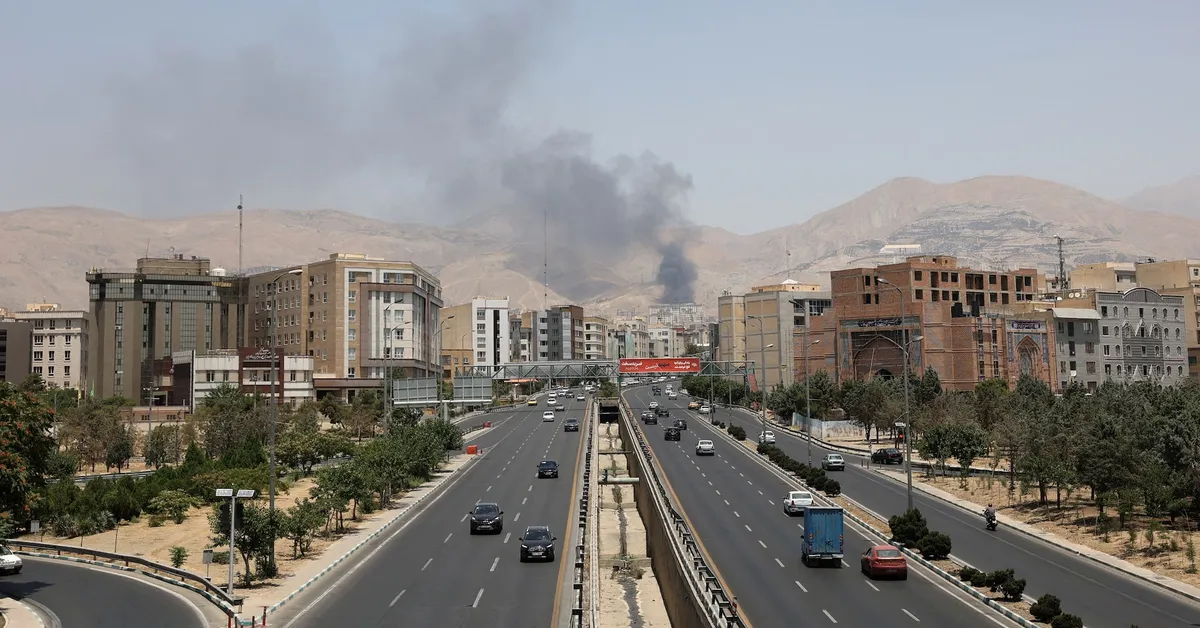
LONDON, June 22 - Recent U.S. strikes on several Iranian nuclear sites mark a significant escalation in the ongoing Middle East conflict. Analysts warn that this could prompt Tehran to disrupt crucial exports of oil and gas from the region, potentially leading to a surge in energy prices. However, historical trends indicate that any such disruption is likely to be short-lived.
Since June 13, benchmark Brent crude prices have climbed by 10%, now exceeding $77 a barrel. Although both Israel and Iran have targeted aspects of each other's energy infrastructure, there has been no substantial disturbance to maritime activity in the region thus far. The situation could change following President Donald Trump’s decision to coordinate with Israel in bombing three of Iran's primary nuclear facilities early on Sunday, potentially altering Tehran's strategic calculations.
With limited options left, Iran might retaliate by striking U.S. targets in the region and disrupting oil flows. Such actions would almost certainly lead to a sharp increase in global energy prices, yet both historical context and current market dynamics suggest that the fallout may be less severe than investors fear.
The critical question is whether Iran has the capability to meaningfully disrupt or block the Strait of Hormuz, which is 55 km (34 miles) wide at its narrowest point. The likely answer is yes. Iran could attempt to lay mines across the Strait or utilize its military forces, including the paramilitary Islamic Revolutionary Guard Corps (IRGC), to target or seize vessels in the Gulf—a tactic they have employed several times in recent years.
While Hormuz has never been completely blocked, it has experienced disruptions. During the 1980s Iran-Iraq war, the two nations engaged in the so-called Tanker Wars, during which Iraq targeted Iranian vessels, and Iran retaliated against commercial ships, including Saudi and Kuwaiti oil tankers, as well as U.S. Navy vessels. Following Kuwait’s appeals, then-U.S. President Ronald Reagan sent naval forces to protect oil tanker convoys between 1987 and 1988 in a mission known as Operation Earnest Will.
History demonstrates that significant disruptions to global oil supplies tend to be short-lived. For instance, Iraq's invasion of Kuwait in August 1991 caused Brent crude prices to double to $40 a barrel by mid-October, but prices returned to pre-invasion levels by January 1992 as a U.S.-led coalition initiated Operation Desert Storm. Similarly, the onset of the second Gulf War in early 2003 saw oil prices rally by 46% in anticipation, only to be quickly reversed before the U.S. military campaign began.
Even the Russia-Ukraine conflict in February 2022 caused a spike in oil prices to $130 a barrel, yet prices returned to $95 by mid-August, thanks in part to ample spare production capacity and reduced demand. Previous oil crises, such as the 1973 Arab oil embargo and the 1979 Iranian revolution, did disrupt supplies but did not involve a blockade of the Strait of Hormuz and were not met with a direct U.S. military response.
The current global oil market does have spare capacity. The OPEC+ alliance, which includes major oil-producing nations, holds approximately 5.7 million barrels per day in excess capacity, with Saudi Arabia and the United Arab Emirates accounting for 4.2 million bpd. However, much of the oil from these Gulf nations is transported through the Strait of Hormuz. Both countries possess pipelines that can bypass the Strait, but these routes remain vulnerable to attacks from Iran-backed groups such as the Houthis in Yemen.
Iraq, Kuwait, and Qatar currently lack viable alternatives to using the Strait of Hormuz for oil transport. Iran may choose not to block the Strait as it would also hinder its own oil exports. Furthermore, Tehran might view further escalation as futile in light of U.S. military involvement and could opt to downplay the impact of U.S. strikes while re-engaging in nuclear negotiations.
In summary, while energy markets may react sharply to U.S. strikes, history suggests that even in the worst-case scenario of a blocked Strait of Hormuz, any resulting supply shock is unlikely to be long-lasting.
By Ron Bousso; Editing by Helen Popper. Our Standards: The Thomson Reuters Trust Principles.